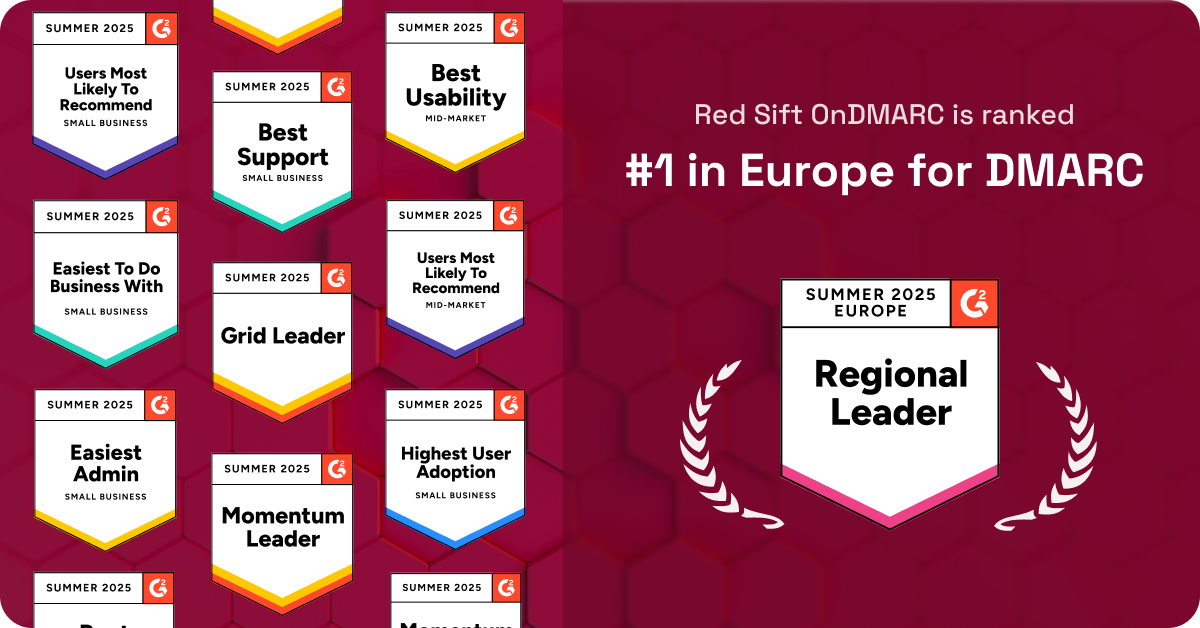A story of being the odd one out

In July 2017 I boarded the rollercoaster that is working for a start-up. I waved goodbye to my old company where I had many marketing colleagues and joined Red Sift where, alongside digital marketing pro Jay, we were the entirety of the Marketing team. Looking after everything from events to branding, from collateral to digital, we were very much in the minority in a company filled with exceptionally smart software engineers and developers.
For me, this change took some adjusting to, and I know I can’t be the only one who was in this position. So, here’s a quick overview of what I learned.
When’s a scrum not a scrum?
When it’s a stand-up ba-dom chuh (think that may be my first and last dev joke).
As a marketer, I was used to meetings booked in days in advance to discuss the latest PowerPoint deck, weekly reporting meetings, and conference calls. So. Many. Conference. Calls. So it was a bit of a shock to the system to find out that every day the whole company would stand up and share what they are working on, any dependencies they have, and problems they needed help solving.

Standing up means there’s an incentive to keep things short, more complicated matters get taken offline and the easy ones get sorted there and then. No waiting until next Tuesday to find out if Steve is free for a meeting in 2 weeks’ time.
Don’t get me wrong, there is still an absolute need for more focused meetings but these daily stand-ups are refreshing. They encourage knowledge-sharing, nipping problems in the bud, and raising awareness across functions of what’s going on in the company.
Long live Slack
I have never worked in a company that is as email light as Red Sift. I reckon I get a grand total of 10 internal emails a week, if that, and it’s wonderful. Instead, I collaborate, chat and send many, many gifs via Slack. In fact, I don’t just use it internally, it also works perfectly for chatting with my PR agency about upcoming press opportunities and new blog posts.

Now I can get answers and resources I need from colleagues much faster, simple requests like “Are you free next Friday?” or “Could you send me the report you shared earlier?” don’t need a whole email to themselves. In fact, it seems bizarre to me that once upon a time I used to send such questions on a Monday, wait until Wednesday to chase, and maybe get a response on a Thursday.
This isn’t me saying I worked with a bunch of unresponsive people, the opposite is in fact true, email overload meant I, and my colleagues, often spent more time managing our inboxes rather than delivering the value we were actually paid for.
Learning the language
Having worked in marketing, sales, and professional services for the past 10 years means I’m pretty conversant in management-speak (some people may use a ruder word, of course, I couldn’t possibly comment) but it’s not until you’re taken out of your comfort zone and dumped into a brave new world that you realise you’re desperately in need of a Babelfish.

I’ve coped so far by simply asking for a translation anytime someone uses a term I’m not familiar with. In a start up there’s no time to waste pretending you know what everyone’s talking about, you need to be delivering from day 1 and you can’t do that unless you know what people are talking about.
That being said, some terms that get bandied around at stand-up I’m still at a loss about include:
- Cron — sounds like an evil genius in a James Bond film
- Hackathon — isn’t a horror movie marathon apparently
- Aerospike — think this might be the latest chocolate bar, albeit with a bit of an edge
- Datadog — some kind of canine superhero putting right qualitative wrongs?
- Back end vs front end — less said about this the better
The new tools of my trade
Before, my arsenal didn’t really extend beyond the Microsoft Office suite and Salesforce. Nowadays I find myself regularly using PivotalTracker and GitHub, not to mention having moved wholesale to GoogleDocs*.

PivotalTracker is a pivotal way we manage every Sprint’s workload, and Marketing is a part of that planning process. Breaking down projects into component parts, assigning owners and contributors and defining outcomes has proved a great way of forcing me to lock in a fortnight’s deliverables. It ensures accountability, focus and co-ordination across teams.
GitHub on the other hand, is a bit scarier. It certainly looks more stereotypically “developer-y” and all the talk of branches, masters and merging definitely makes it less intuitive to use. If pushed I could may be summon up some explanation of it being a way of enabling simultaneous collaboration on code without ruining version management. But push me for more and I’ll mumble into my coffee cup and point you in the direction of the dev team. However, what it has given me is direct access to the copy on the website which is great, I no longer have to live with rogue spelling errors or outdated feature lists until a web team get round to fixing it.
Sidenote: IMHO Sheets is no Excel and no matter how convenient the collaboration aspect is, Slides just isn’t as flexible as PowerPoint. Some habits are too ingrained to change I guess.
So is this Agile marketing?
I suppose, on reflection, what I’ve stumbled into is the world of Agile marketing. With new code and product being pushed live at least once a sprint I have to make sure marketing keeps pace. The only way to truly achieve this is to be in sync with the organisation driving this innovation, which means following their rhythm, using similar tools and speaking the same language.
There’s definitely still value in ‘old school’ ways of marketing, and I will continue to use them as I grow the Red Sift marketing team, but for now I’m excited to be part of this evolution in marketing.
Find out more about what we do at redsift.com.





